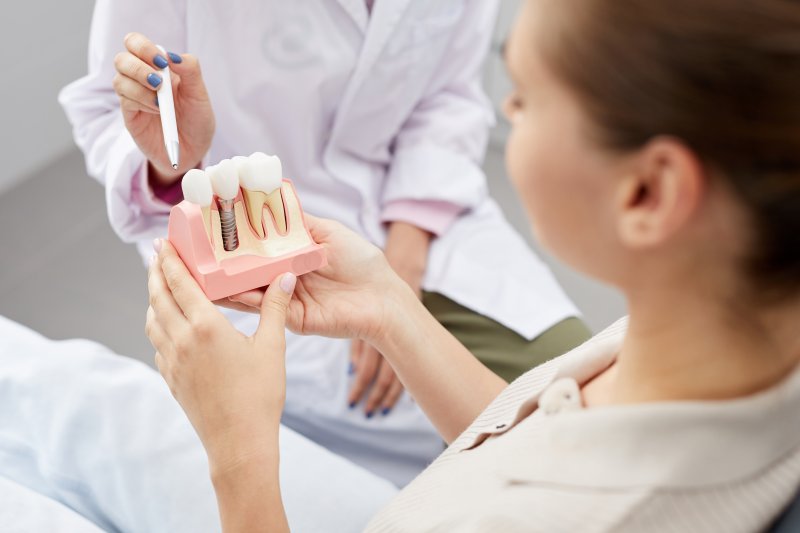Dental implants mimic your natural tooth structure, right? They have no nerves and cannot decay. They are an artificial representation that allows for improved functionality and a complete appearance. So, how is it possible that you are experiencing sensitivity in your dental implant? This is a question many patients ask that often leaves them feel perplexed and concerned. Before you start jumping to conclusions and bracing for the worst-case scenario, a dentist is here to explain what can cause such a sensation and why it is important to seek professional help as soon as you notice a problem.
How Can Sensitivity Occur When Wearing Dental Implants?
If dental implants do not contain nerves, the unpleasant feeling may be the result of a few different scenarios:
- Nearby tooth pain: Instead of your dental implant being the culprit, the pain may be from a nearby tooth that is experiencing sensitivity. While it might seem as if it is your prosthetic is causing the pain, it is actually a real tooth suffering from either an infection or severe tooth decay.
- Gum inflammation: When the soft oral tissues surrounding your teeth (both real and artificial) become inflamed, it can negatively impact your dental implants and even cause them to fail if left untreated.
- Nerve damage: Although 95% of dental implant surgeries are a success, there is the possibility that nerve or tissue damage can occur, resulting in sensitivity to the implant site.
- Lodged objects: If food should become lodged between your implant and natural tooth, this can irritate the gum tissue and sensitivity to occur. Additionally, if an implant is not properly placed and sits too close to another tooth, the additional pressure and rubbing can lead to discomfort.
Ways to Minimize Potential Sensitivity
While certain situations may not be your fault (i.e., placement of your implant, nerve and tissue damage), there are things you can do to minimize any feelings of sensitivity. Your dentist can also be your greatest ally should you begin to experience discomfort while wearing a dental implant in DuPont.
Some helpful tips include:
- Keep your regular six-month dental checkups and cleanings to ensure no decay or gum disease is developing
- Eat healthy foods that contain beneficial vitamins and minerals (i.e., calcium-rich foods like milk, cheese) that help strengthen regular tooth enamel as well as your jawbone
- Prevent teeth grinding and clenching by wearing a customized mouthguard
- Use a mouthwash designed to combat sensitivity and gum inflammation
- Do not aggressively brush your teeth but instead, use a soft-bristled toothbrush to clean your smile twice a day
- Floss at least once a day
- Avoid smoking or using tobacco products
It is natural to be concerned should you experience tooth sensitivity. Whether it happens to your real or artificial teeth, it is better to seek immediate help to avoid more serious problems that can jeopardize your dental implants.
About the Practice
Dupont Family Dentistry has four dental professionals who all strive to meet the same goal, which is to help patients achieve happier, healthier smiles. If dental implants are recommended for tooth loss, patients can expect personalized treatment and top-of-the-line service throughout the entire process. While it is rare to experience problems, our team is here to provide immediate assistance should sensitivity or dental implant failure occur. Contact us at (253) 964-7000 and let us help you better maintain your new and improved smile.

